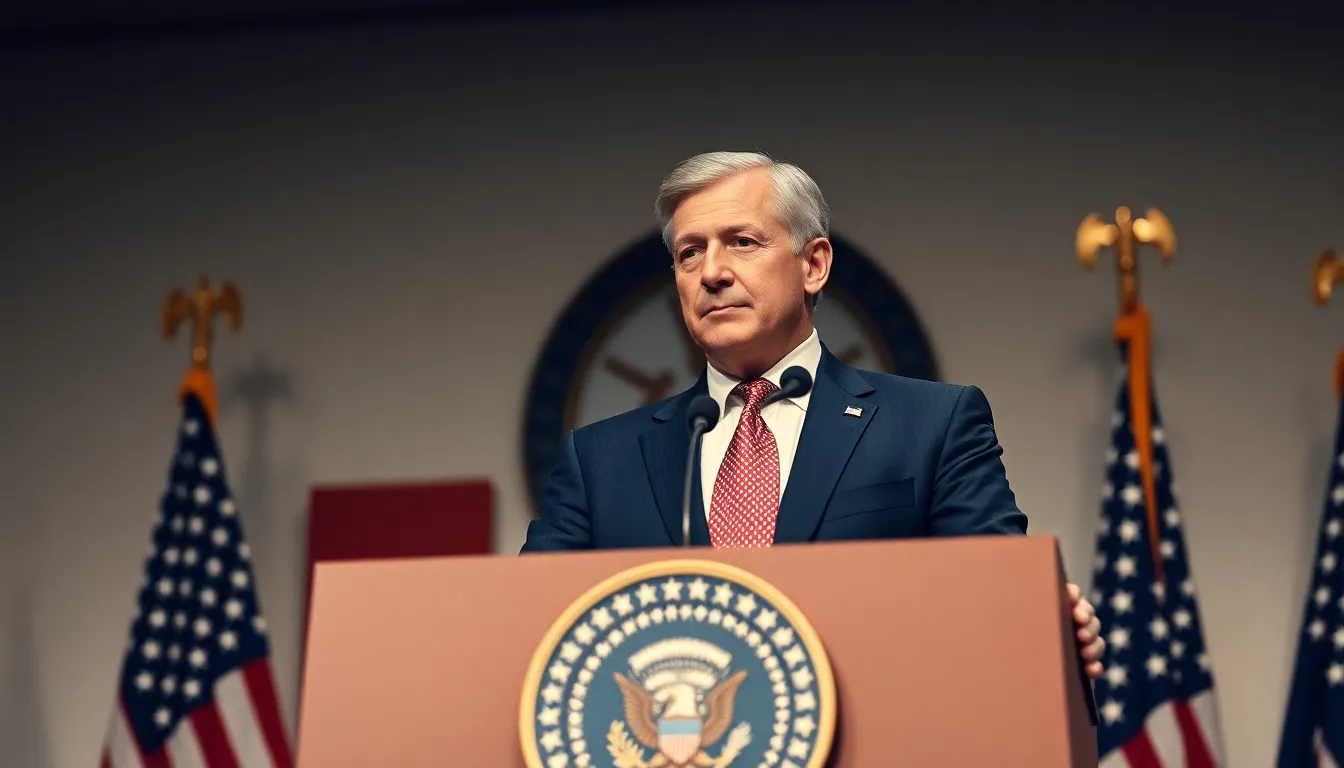Could Barack Obama ever serve as vice president again? It’s a question that tickles the imagination and stirs up some serious political banter. After all, who wouldn’t want to see the former president swap the Oval Office for the vice-presidential suite? Picture it: Obama, the cool, collected leader, now playing second fiddle while still managing to steal the spotlight.
The Eligibility of Barack Obama
Barack Obama’s potential candidacy for vice president raises important questions about eligibility criteria. The discussion requires a focus on constitutional mandates and historical examples.
Constitutional Requirements
The 22nd Amendment limits an individual to two terms as president. Despite this, the Constitution does not prohibit a former president from serving as vice president. It specifies that vice presidents must be natural-born citizens, at least 35 years old, and residents of the United States for fourteen years. Given these provisions, Obama meets all the necessary qualifications if he wishes to pursue the role of vice president.
Historical Precedents
Historical instances offer context for this scenario. John Tyler served as vice president after the death of William Henry Harrison despite being president consecutively. Meanwhile, Martin Van Buren and Andrew Johnson both held roles as vice presidents after their presidencies. These examples illustrate that a former president can indeed step into the vice presidential role, showcasing a unique and somewhat rare pathway in American political history.
The Role of Vice President

The vice president plays a crucial role in the U.S. government. Serving as the second-in-command, the vice president assists the president while overseeing specific responsibilities.
Responsibilities and Powers
Duties of the vice president include presiding over the Senate and casting tie-breaking votes. The vice president also represents the president at official functions and engagements. Additionally, they may assume the presidency if the president becomes unable to serve. Understanding these responsibilities showcases the importance of this position in maintaining government continuity.
Influence on Policy
The vice president often influences policy through close collaboration with the president. Engaging in high-level discussions, they provide input on critical decisions. Serving as a key advisor, the vice president can sway opinions within the administration. This role offers a platform for addressing significant issues, shaping policies aligned with presidential goals.
Potential Implications of Obama as Vice President
Speculation around Barack Obama serving as vice president poses numerous implications for both politics and public opinion.
Impact on the Current Administration
An Obama vice presidency could significantly influence the current administration’s dynamics. His experience in the Oval Office offers invaluable insights into governance and diplomacy. Collaborating with the sitting president, Obama could provide a steady hand on foreign policy initiatives. Additionally, his presence might enhance the administration’s credibility, especially regarding democratic values. His ability to connect with various demographics can help foster unity within party lines. Navigating complex legislative issues would benefit from his established rapport with lawmakers. Overall, the current administration could see enhanced cooperation and strategic guidance.
Public Perception and Support
Public perception surrounding an Obama vice presidency might shift dramatically. Many Americans recall his charisma and impactful leadership during his presidency. Enthusiasm for his candidacy could stimulate voter engagement and attract support from younger demographics. His vast network and popularity could also revive interest in political participation. Moreover, Obama’s role as a historical figure could galvanize discussions on race, inclusion, and progress. Critics may express concerns about him stepping down from the presidency, but his supporters often emphasize his unique qualifications. Ultimately, this scenario could reshape public discourse and generate renewed interest in democratic values.
Challenges and Considerations
Barack Obama’s potential candidacy for vice president presents various challenges and considerations that require careful exploration.
Legal Obstacles
The U.S. Constitution sets clear eligibility requirements for vice presidential candidates. A candidate must be a natural-born citizen, at least 35 years old, and a resident for 14 years. Obama’s previous two terms as president do not disqualify him from this role. The 22nd Amendment limits presidential terms, yet it does not apply to vice presidency. Legal interpretations confirm he can serve in this capacity. Historical precedents, such as John Tyler and Andrew Johnson, further support this notion, affirming that former presidents can transition to vice president without constitutional barriers.
Political Dynamics
Political dynamics play a crucial role in evaluating Obama’s return to a high-ranking position. His vice presidency could introduce a significant shift in current political landscapes. Collaborating with the sitting president might strengthen party unity and enhance credibility on various issues. Opposition parties could leverage his past popularity, creating both allyship and dissent. Public reception would greatly influence the administration’s agenda and overall strategy. His charisma and established rapport with younger voters could drive increased engagement in future elections, reshaping political discussions and voter turnout in noteworthy ways.
The prospect of Barack Obama serving as vice president opens up a fascinating chapter in American politics. His unique experience and established rapport with the electorate could bring fresh perspectives to the vice presidency. With minimal legal barriers and strong historical precedents backing such a move, the potential impact on both the current administration and public sentiment is significant.
His involvement could not only enhance party unity but also inspire a new wave of voter engagement. As discussions continue around this possibility, it’s clear that Obama’s return to a prominent political role would undoubtedly reshape conversations about leadership and governance in the United States.
